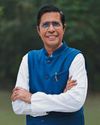
Twenty-four-year-old Ajay Kumar is in a state of quiet anticipation. His short-lived vacation at his native village in the Purnea district of Bihar is soon coming to an end. In a matter of days, he must leave his family behind and make an eight-hour bus journey to the state capital Patna. From there, the young labourer will board the Sanghamitra Superfast Express, which will take him to the southern metropolis of Bengaluru in Karnataka. The 44-hour-long train journey will move Kumar from an annual per capita differential of around ₹1,33,692 when it takes him back to a city where he cannot speak the local language and will have to toil 12 hours every day at a tile factory. But, for the promise of a better tomorrow and supporting his family, he will have to make this long journey across what is India’s great divide.
He is not alone in this quest. In search of better employment opportunities, millions like Kumar migrate from the central and eastern hinterland—this includes the eastern region of Uttar Pradesh as well—of India towards the more developed states of the southern and western coast. “There is a substantial transfer of labour from the eastern region to southern states, because workers get better wages in the more developed states. These are mostly people who give up rain-fed subsistence farming to take up informal labour in richer states,” observes Benoy Peter, executive director of the Centre for Migration and Inclusive Development, an Ernakulam-based non-profit that works on migration.
Esta historia es de la edición February 2024 de Outlook Business.
Comience su prueba gratuita de Magzter GOLD de 7 días para acceder a miles de historias premium seleccionadas y a más de 9,000 revistas y periódicos.
Ya eres suscriptor ? Conectar
Esta historia es de la edición February 2024 de Outlook Business.
Comience su prueba gratuita de Magzter GOLD de 7 días para acceder a miles de historias premium seleccionadas y a más de 9,000 revistas y periódicos.
Ya eres suscriptor? Conectar

From Chandni Chowk to Global Recognition
For Manish Aggarwal, director at Bikano, Bikanervala Foods, the family business was not just a responsibility but a passion he took to the global stage

Spotting AI Scams
Al has become an integral part of our lives, from customer service no insurance claims. But it is also becoming a tool for fraudsters who use it to scam individuals and corporations

Let a Hundred Flowers Bloom
On the banks of the Ganges in industrial Kanpur, a start-up has blossomed that turns waste flowers into incense

BATTERY LOW
India produces enough green energy to power many of its largest cities yet lacks the storage to use it efficiently. A nation blazing forward must leap ahead in battery technology to stay on course

We Have Everything Going for Rajasthan
Rajyavardhan Singh Rathore, Rajasthan’s industry and commerce minister, tells Pushpita Dey why the state is suited to become a hub for investments.

Dairy and Other Dilemmas
India’s refusal to open its dairy market has complicated trade negotiations for years. As global partners demand concessions, is the cost of protectionism outweighing benefits?

Riding in a Maze
As gig workers ride into an uncertain future with little more than a smartphone and a bike, the government is struggling to arrange a socialsafety net. But millions without social security is recipe for disaster

BIRLA'S BIGGEST BATTLE
As Kumar Mangalam Birla completes 30 years at the helm of the Aditya Birla Group, he has a battle to defend his businesses and conquer new ones

THE INNOVATION LEAP
India dreams of becoming a product nation. But unless the corporate sector significantly increases spending on R&D, the country will continue to lag behind global peers

EDUCATION BUDGET MUST DOUBLE EVERY 3 YEARS
Veezhinathan Kamakoti, a renowned academic and director of Indian Institute of Technology Madras, tells Deepsekhar Choudhury on what technology sovereignty means for India and how it can propel the country towards its vision of becoming a developed nation by 2047.